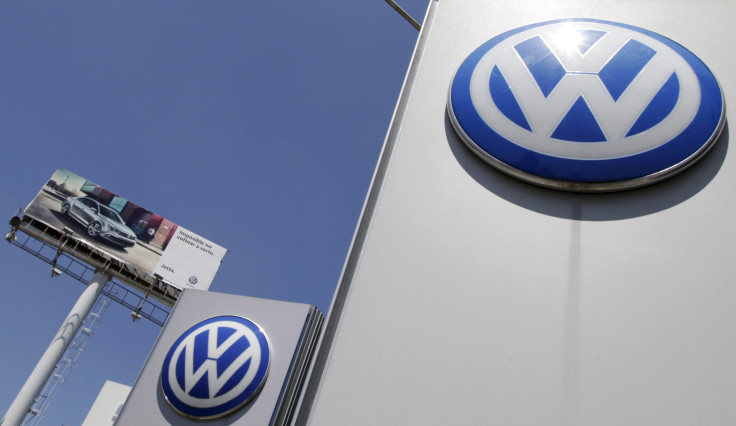Volkswagen Emissions Scandal: Dealers Continue To See Customer Loyalty After Order To Stop Selling Diesels

The day after Volkswagen told its dealers to stop selling diesel vehicles with emissions-cheating software, Jimmy Thornhill mulled a very small part of the global scandal. The previous day, a man had walked into his Molle Volkswagen dealership in Kansas City, Missouri, and purchased a 2014 diesel-powered Jetta — and Thornhill knew he would be back that day to pick up the car.
And now Thornhill, who has sold cars for more than 23 years, was considering an unusual proposal: He would offer the customer a full refund. No directives from global headquarters. He just thought it was the right thing to do. But even after all these years on the lot, Thornhill was taken aback by the customer's response.
“I told him I’d be happy to refund his deposit, but he said, 'No, no, no. I still want the car; I’ll just wait,' ” Thornhill said on Saturday. “Regardless of the scandal, people with Volkswagens are very loyal.”
Despite Volkswagen’s lack of communication with dealers about when the car fixes will come -- and all of the uncertainty about the company’s immediate future -- dealers from Ohio to Florida said on Saturday that they aren’t so worried about losing significant sales. Loyal customers, money in hand, are still coming into their dealerships -- even after the sales halt on diesel models and the bad publicity. A few dealers even report they are still getting calls from prospective customers asking when they can again buy diesel models.
Volkswagen on Friday rolled out a webpage allowing owners to see if their car is one of the 11 million thought to be affected by the illegal emissions-cheating software. On the webpage launched nearly two weeks after the scandal broke, Volkswagen said that it is working hard to inform each customer with an affected car and that it is making every effort to win, or keep, the trust of customers.
Carlos Rizo, Internet sales manager at David Maus Volkswagen North in Orlando, Florida, said customers with affected vehicles have called the dealership mostly wondering what they should do with the cars, which have been deemed safe to drive. Volkswagen drivers usually do not switch car brands, Rizo said, and the customers who buy the diesel models are attracted to them because of their price, often much cheaper than cars with similar engine types made by BMW or Mercedes-Benz.
The Volkswagen scandal has a knock-on effect on its rivals—for the worse http://t.co/6sRgFB8TKL pic.twitter.com/wBYmma9F30
— The Economist (@TheEconomist) October 3, 2015“Volkswagen customers are very loyal; it’s not like they buy a Honda then they go buy a Toyota,” Rizo said. “For some reason Volkswagen owners are extremely loyal to the brand.”
Brandon Globokar, a salesperson at Eastside Mazda Volkswagen in Willoughby Hills, Ohio, an affluent suburb of Cleveland, said about half of the customers who bought diesels from his dealership have said they want to return the car.
“You have your people definitely disappointed in Volkswagen over [the scandal], then you have some people it doesn’t affect; they just don’t care,” Globokar said. “A lot of people grew up with them, Beetles especially, and that kind of always carried on."
Some dealers have said that despite the scandal, they are still getting calls to buy the diesel models. Thornhill said prospective customers have asked when they can buy a diesel Volkswagen again.
“I’ve had several people come in and want to buy a TDI, and I just can’t sell it to them,” Thornhill said, referring to the type of turbodiesel engine that the affected Volkswagen cars used.
Volkswagen sales only grew by 1 percent in September, NPR reported, but some loyalists still want their Volkswagens.
Volkswagen says emission scandal investigations to take months http://t.co/JpTwMtZe2p
— Reuters Top News (@Reuters) October 2, 2015“We’re getting a lot of phone calls from customers asking us when we’re going to be able to release those vehicles again so they can come and buy them,” Rizo said. “It’s their fuel economy; regardless of what they say, [the cars] get great gas mileage.”
Some dealers have said the negative publicity of the scandal hasn’t significantly slowed their sales of non-diesel Volkswagens. Gasoline models are still selling well for Globokar, who said diesel models make up 8 percent of his dealership’s Volkswagen stock. Rizo, who said diesel models comprise 10 to 20 percent of his Volkswagen sales, said when the scandal first broke, he was afraid of losing business.
“As of right now, it doesn’t seem like that’s what’s happening,” Rizo said. “We’re still selling [gas-powered] Volkswagens, and we’re still getting calls on the diesel models.”
Thornhill said despite the bad publicity and the fact he can’t sell the diesel models -- which make up about 12 to 15 percent of his Volkswagen sales -- his dealership ended September with strong sales.
“The media does tend to blow things out of proportion a little bit; I don’t think it's as big a thing as the media makes it out to be,” Thornhill said of the scandal. “Other cars emit more dangerous fumes.”
© Copyright IBTimes 2024. All rights reserved.




















